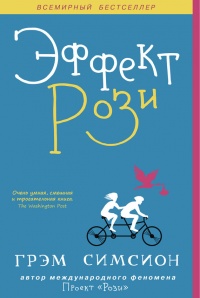Читать книгу - "Постчеловек: глоссарий - Рози Брайдотти"
Аннотация к книге "Постчеловек: глоссарий - Рози Брайдотти", которую можно читать онлайн бесплатно без регистрации
В свете новых вызовов, охватывающих современное общество, концепт человека как таковой, а также проблема его взаимодействия с искусством, точными и гуманитарными науками претерпели существенные изменения. Данный процесс, называемый «постчеловеческим состоянием», подвержен влиянию неолиберальной экономики, глобального капитализма, миграционной политики, технологического прогресса, экологических проблем, борьбы с терроризмом и т. д. «Постчеловек: глоссарий» представляет собой сборник ключевых терминов постчеловечества в контексте современного искусства и интеллектуальной сферы. Он охватывает такие широкие темы, как антропоцен, капиталоцен, экология, цифровой активизм, алгоритмическая культура и нечеловеческое. В глоссарии представлены краткие определения этих понятий и исследуются художественные, интеллектуальные и активистские подходы к решению сложных проблем «постчеловеческого состояния». Сборник помогает разобраться в изменениях, которые произошли в искусстве в контексте современных событий, связывает различные дисциплины, аудитории и критические сообщества. Рози Брайдотти (род. 1954) – философ и теоретик феминизма, ее теоретические работы повлияли на становление постгуманизма. Мария Хлавайова (род. 1971) – куратор и теоретик, основательница и художественный директор пространства BAK (Утрехт).
Crutzen, P. J. and E. F. Stoermer (2000), ‘The Anthropocene’, Global Change Newsletter 41: 17–18.
Cubitt, S. (1998), Digital Aesthetics, London: Sage.
Cubitt, S. (2014a), The Practice of Light. A Genealogy of Visual Technologies from Prints to Pixels, Cambridge, MA: MIT Press.
Cubitt, S. (2014b), ‘Decolonizing Ecomedia’, Cultural Politics 10(3): 275–86.
Cuff, D and M. Hansen (2008), ‘Urban Sensing: Out of the Woods’, Communications of the Association for Computing Machinery, 51(3): 24–33.
Cuttitta, P. (2012), Lo spettacolo del confine: Lampedusa tra produzione e messa in scena della frontiera, Milan: Mimesis.
Cvetkovich, A. (2012), Depression: A Public Feeling, Durham, NC: Duke University Press.
Da Costa, B. and K. Philip (2008), Tactical Biopolitics: Art, Activism, and Technoscience, Cambridge, MA: MIT Press.
Damasio, A. (1995), Descartes’ Error: Emotion, Reason, and the Human Brain, New York: Penguin.
Damasio, A. (2003), Looking for Spinoza? Joy, Sorrow and the Feeling Brain. London: William Heinemann.
Danowski D. and E. V. de Castro (2014), ‘Ha mundos por vir? Ensaio sobre os meios e os fins’, Brazil: Cultura e Barbarie.
Darling, J. (2014), ‘Post-Whatever #usermilitia’, in O. Kholeif (ed), You Are Here: Art After the Internet, Manchester: Cornerhouse.
Davies, W. (2015), ‘The Return of Social Government: From “Socialist Calculation” to “Social Analytics” ’, European Journal of Social Theory, 2(3): 359–77.
Davis, H. and E. Turpin (eds) (2015), Art in the Anthropocene. Encounters Among Aesthetics, Politics, Environments and Epistemologies, London: Open Humanities Press.
Davis, N. (2009), ‘New Materialism and Feminism’s Anti-Biologism: A Response to Sara Ahmed’, European Journal of Gender Studies, 16(1): 67–80.
Davis, W. (1988), Passage of Darkness: The Ethnobiology of the Haitian Zombie, Chapel Hill: University of North Carolina Press.
Dawn (2015), ‘Jaws, the Slasher, and the Encounter at the Heart of Horror’, Horror Homeroom, 5 July, http://www.horrorhomeroom.com/jaws-the-slasher-and-the-encounter-at-the-heart-ofhorror/ [accessed 5 January 2016].
De Gennaro, M. (2003), ‘Fighting Humanism on Its Own Terms’, differences: A Journal
of Feminist Cultural Studies, 14(1): 53–73.
De la Cadena, M. (2015), Earth Beings. Ecologies of Practice across Andean Worlds, Durham NC: Duke University Press.
Dean, J. (2010), Blog Theory: Feedback and Capture in the Circuits of the Drive, Oxford: Polity Press.
Dean, J. (2013), ‘Society Doesn’t Exist’, First Monday 18(3–4): n.p.
Dean, J. (2015), ‘Affect and Drive’, in K. Hillis, S. Paasonen and M. Petit (eds), Networked Affect, 89–100, Cambridge, MA: MIT Press.
Dean, T. (2000), Beyond Sexuality, Chicago: University of Chicago Press.
Dearlove, J. E. (1982), ‘Syntax Upended in Opposite Corners: Alterations in Beckett’s Linguistic Theories’, in M. Beja, S.E. Gorontarski and P. Astier (eds), Samuel Beckett: Humanistic Perspectives, Columbus: Ohio State University Press.
DeLanda, M. (1996), ‘The Geology of Morals: A Neo-Materialist Interpretation’, http://www.t0.or.at/delanda/geology.htm [accessed 21 December 2015].
DeLanda, M. ([1997] 2000), A Thousand Years of Nonlinear History, New York: Zone Books.
DeLanda, M. (2002), Intensive Science and Virtual Philosophy, London: Bloomsbury.
Deleuze, G. (1979), ‘Metal, Metallurgy, Music, Husserl, Simondon’, ‘Sur Anti-Oedipe et Mille Plateaux: Cours Vincennes – 27/02/1979’, Les Cours de Gilles Deleuze, https://www.webdeleuze.com/textes/186 [accessed 3 April March 2017].
Deleuze, G. (1990), ‘Gilles Deleuze in conversation with Antonio Negri’, trans. M. Joughin, Futur Anterieur 1 (Spring), http://www.generation-online.org/p/fpdeleuze3.htm [accessed 27 April 2017].
Deleuze, G. and Parnet, С. (1987), Dialogues, trans. Hugh Tomlinson and Barbara Habberjam. Minneapolis: University of Minnesota Press.
Delgado, M. R., J. Li, D. Schiller and E. A. Phelps (2008), ‘The Role of the Striatum in Aversive Learning and Aversive Prediction Errors’, Philosophical Transactions of the Royal Society B: Biological Sciences, 363(1511): 3787–800.
DeLoughrey, E. and G. B. Handley (eds) (2011), Postcolonial Ecologies: Literatures of the Environment, New York: Oxford University Press.
Demmers, J. (2017), Theories of Violent Conflict, 2nd ed., London and New York: Routledge.
Demos, T. J. (2015), ‘Rights of Nature: The Art and Politics of Earth Jurisprudence’, Nottingham Contemporary, http://www.nottinghamcontemporary.org/sites/default/files/Rights%20of%20Nature%20The%20Art%20and%20Politics%20of%20Earth%20Jurisprudence.pdf [accessed 10 May 2016].
Dennett, D. (2010), Freedom Evolves, London: Penguin Books.
Der Derian, J. (2005), ‘Imaging Terror: Logos, Pathos and Ethos’, Third World Quarterly 26(1): 23–37.
Derrida, J. (1988), Limited Inc, Evanston: Northwestern.
Derrida, J. (1996), Archive Fever: A Freudian Impression, Chicago: University of Chicago Press.
Derrida, J. (1998), ‘Faith and Knowledge: The Two Sources of “Religion” at the Limits of Reason Alone’, in J. Derrida and G. Vattimo, Religion, 1–78, Stanford: Stanford University Press.
Derrida, J. (2002), ‘Faith and Knowledge: The Two Sources of “Religion” at the Limits of Reason Alone’, in Acts of Religion, ed. G. Anidjar, 40–101, New York and London: Routledge.
Derrida, J. (2007), ‘No Apocalypse, Not Now: Full Speed Ahead, Seven Missiles, Seven Missives’, in Psyche: Inventions of the Other, ed. P. Kamuf and E. G. Rottenberg, 387–409, Stanford: Stanford University Press.
Derrida, J. and Stiegler, B. (1996), Echographies de la television, Paris: Editions Galilee.
Dery, M. (1994), ‘Black to the Future: Interviews with Samuel R. Delany, Greg Tate, and Tricia Rose’, in Dery, M. (ed.), Flame Wars: The Discourse of Cyberculture, 179–222, Durham, NC: Duke University Press.
Deseriis, M. (2015), Improper Names: Collective Pseudonyms from the Luddites to Anonymous, Minneapolis: University of Minnesota Press.
Desrosieres, A. (2002), The Politics of Large Numbers: A History of Statistical Reasoning, Cambridge, MA: Harvard University Press.
Detienne, M. and J. P. Vernant (1974), Les ruses de l’intelligence: la metis des Grecs, Paris: Flammarion et Cie.
Deutsch, D. (2012), ‘Creative Blocks’, Aeon Magazine, http://aeon.co/magazine/technology/david-deutsch-artificial-intelligence/ [accessed 8 November 2015].
Di Paolo, E. (2009), ‘Extended Life’, Topoi, 28(1): 9–21.
Diakopoulos, N. (2013), ‘Rage Against the Algorithms’, The Atlantic, 3 October, http://www.theatlantic.com/technology/archive/2013/10/rage-againstthealgorithms/280255/ [Accessed 16 November 2015].
Diakopoulos, N. (2014), ‘Algorithmic Accountability’, Digital Journalism, 3(3): 398–415.
Diamond, J. (1989), ‘The Present, Past and Future of Human-Caused Extinctions.’ Philosophical Transactions of the Royal Society of London, Series B, 325: 469–77.
Diepenbrock, С. (1998), Gynaecology and Textuality: Popular Representations of Reproductive Technology, New York and London: Garland Publishing.
Dijck, J. (van) (2012), ‘“You Have One Identity”: Performing the Self on Facebook◊ and LinkedIn’, Media, Culture & Society, 35(2): 199–215.
Dijck, J. (van) (2013), The Culture of Connectivity: A Critical History of Social Media, Oxford: Oxford University Press.
Dijstelbloem, H. (2016), ‘Breaking the Border: Surveillance, Digital Counter-Movements and the Politics of (In-) Visibility’, in
Прочитали книгу? Предлагаем вам поделится своим впечатлением! Ваш отзыв будет полезен читателям, которые еще только собираются познакомиться с произведением.
Оставить комментарий
-
 Илья12 январь 15:30
Книга прекрасная особенно потому что Ее дали в полном виде а не в отрывке
Горький пепел - Ирина Котова
Илья12 январь 15:30
Книга прекрасная особенно потому что Ее дали в полном виде а не в отрывке
Горький пепел - Ирина Котова
-
 Гость Алексей04 январь 19:45
По фрагменту нечего комментировать.
Бригадный генерал. Плацдарм для одиночки - Макс Глебов
Гость Алексей04 январь 19:45
По фрагменту нечего комментировать.
Бригадный генерал. Плацдарм для одиночки - Макс Глебов
-
 Гость галина01 январь 18:22
Очень интересная книга. Читаю с удовольствием, не отрываясь. Спасибо! А где продолжение? Интересно же знать, а что дальше?
Чужой мир 3. Игры с хищниками - Альбер Торш
Гость галина01 январь 18:22
Очень интересная книга. Читаю с удовольствием, не отрываясь. Спасибо! А где продолжение? Интересно же знать, а что дальше?
Чужой мир 3. Игры с хищниками - Альбер Торш
-
 Олена кам22 декабрь 06:54
Слушаю по порядку эту серию книг про Дашу Васильеву. Мне очень нравится. Но вот уже третий день захожу, нажимаю на треугольник и ничего не происходит. Не включается
Донцова Дарья - Дантисты тоже плачут
Олена кам22 декабрь 06:54
Слушаю по порядку эту серию книг про Дашу Васильеву. Мне очень нравится. Но вот уже третий день захожу, нажимаю на треугольник и ничего не происходит. Не включается
Донцова Дарья - Дантисты тоже плачут





